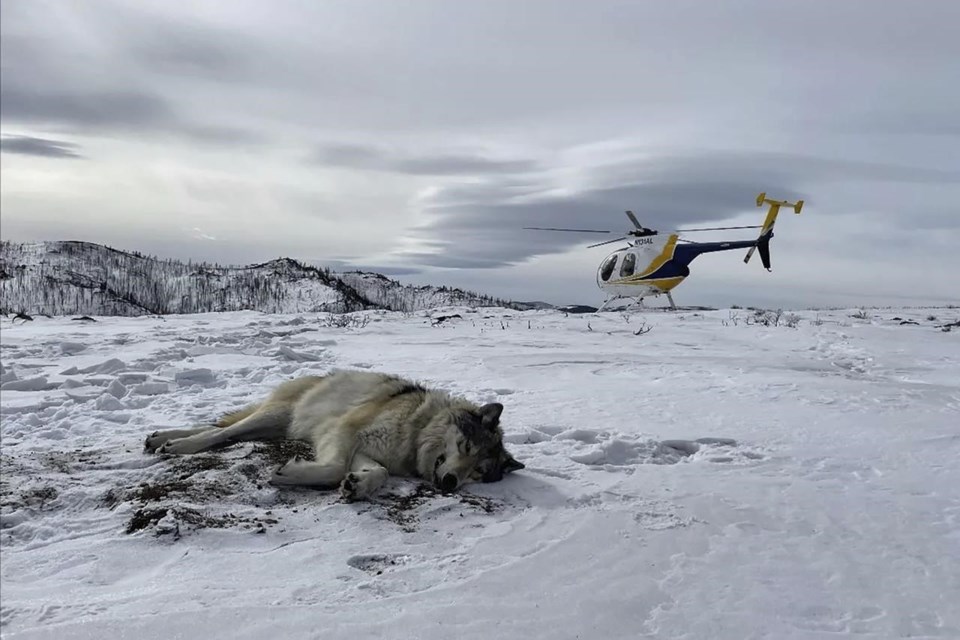DENVER (AP) — A federal judge has allowed the reintroduction of gray wolves in Colorado to move forward after representatives of the state's cattle industry asked for a temporary stay in the predators' release in a lawsuit.
While the lawsuit will continue, the judge’s ruling allows Colorado to proceed with its plan to find, capture and transport up to 10 wolves from Oregon starting Sunday. The deadline to put paws on the ground under the voter-approved initiative is December 31.
The lawsuit from the Colorado Cattlemen’s Association and The Gunnison County Stockgrowers’ Association alleges that the U.S. Fish and Wildlife Service failed to adequately review the potential impacts of Colorado’s plan to release up to 50 wolves in Colorado over the next several years.
The groups argued that the inevitable wolf attacks on livestock would come at significant cost to ranchers, the industry that helps drive the local economies where wolves would be released.
Attorneys for the U.S. government said that the requirements for environmental reviews had been met, and that any future harms would not be irreparable, which is the standard required for the temporary injunction sought by the industry.
They pointed to a state compensation program that pays owners if their livestock are killed by wolves. That compensation program — up to $15,000 per animal provided by the state for lost animals — is partly why the judge sided with state and federal agencies.
The judge further argued that ranchers' concerns didn't outweigh the public interest in meeting the will of the people of Colorado, who voted for wolf reintroduction in a 2020 ballot initiative.
Gray wolves were exterminated across most of the U.S. by the 1930s under government-sponsored poisoning and trapping campaigns. They received endangered species protections in 1975, when there were about 1,000 left in northern Minnesota.
Wolves have since rebounded in the Great Lakes region. They’ve also returned to numerous western states — Idaho, Montana, Wyoming, Oregon, Washington and, most recently, California — following an earlier reintroduction effort that brought wolves from Canada to central Idaho and Yellowstone National Park in the 1990s.
Associated Press, The Associated Press

